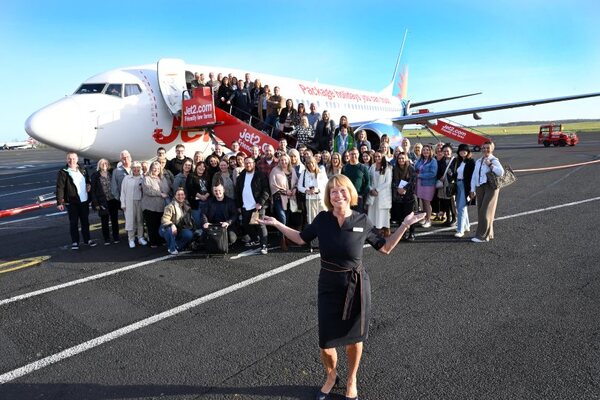‘Atol reform is about more than just stability – it's about faith in travel’
 Gary Noakes
Gary NoakesIf Atol reform strikes you as a dull, complex issue, you could be right – but it is one that will impact the stability of the industry and the public’s faith in it, not to mention bring cost implications for agents and other travel sellers.
The CAA plans to introduce a new way of safeguarding payments for Atol-protected travel and a means of replenishing the Air Travel Trust Fund (ATTF), still depleted by the collapse of Thomas Cook in 2019, which pays out when Atol holders collapse.
Its thinking is now “minded” towards a hybrid model, with segregation of customer funds plus bonds or other financial instruments, and a variable rate Atol Protection Contribution (APC) that could run to as much as £15pp.
A previous consultation in 2021 saw segregation of monies rejected by a majority of respondents. However, head of Atol Michael Budge said: “In the first consultation, we talked about bonding and segregation as mandatory options. We uncovered a view expressed by many that this was the CAA rolling out trust accounts. That was not what we were narrating then. We think segregation, not trust accounts, is our emerging preference.”
MORE: Latest Atol reform ideas have industry experts split
The CAA suggests two options: total segregation, with all customer monies held in trust until the holiday is completed, or segregation that allows for release of funds for certain suppliers.
Jake Cohen, finance and regulatory manager at industry specialists White Hart Associates and a former CAA manager, said the latest proposals were a “possible softening of the CAA’s view”, with an informal client account segregation overseen by a designated director, a system used in some parts of the US.
He was supportive of the proposals, but added: “There will be many questions on how this would work in practical terms, such has what personal liability could the director and/or Atol reporting accountant face in this scenario?”
The next biggest change will be to the APC. The CAA is exploring whether the current £2.50 flat rate should reflect the size of firm and its financial strength, and the value of the trip. In addition, it suggests operators with their own airline could be perceived as higher risk because of potential repatriation costs.
Cohen said: “Any proposed changes to the rate of APC should be aligned to risk. Past failures of XL Group, Monarch and Thomas Cook showed us integrated groups pose a significant and disproportionate risk to the ATTF, which have far outstripped other calls on the reserve in recent history.”
A variable APC is proposed, which CAA focus groups appear to back, even though it will mean a big hike for some package sales. The Atol Reform document said: “The CAA is able to derive a variable rate APC for each Atol-holder of around 50p to around £15pp per booking compared to a flat rate of £2.50 today.”
‘Nothing too wild’
Sunvil director Noel Josephides was broadly supportive: “I like the idea of a simple client account with a variable APC," he told TTG. "Aito had a lot of discussions with the CAA, and they have listened."
However, he said scheduled airlines – not part of Atol’s remit – could be included via a small levy on all flights leaving the UK. “The CAA is allowing airlines to use customer money as they want – they take it from operators months in advance. The airline sector should be tied in.”
Alan Bowen, legal advisor to the Association of Atol Companies, said he was “somewhat disappointed” by the proposals and favoured a system where consumers “would potentially pay a much higher level of APC”.
“We were looking forward to a variable APC, but they are looking at segregation of funds with a possible variable APC attached to that," he said. "I’m not sure the industry will be too wild.”
The AAC will survey members and give an official response in the next few weeks.
The CAA’s consumer interviewees did seem in favour, although these were small samples. A levy of below £10 was considered “a bargain” by 57% of consumers, with 83% saying £6 was good value. A big majority also backed a sliding scale, with only 16% saying it should be a flat rate. Most preferred a percentage of holiday cost rather than a rate based on the destination, financial risk or operator size.
Changes to the APC will need to be backed by MPs in parliament, but the CAA is confident there is time to do this before the next election.
One area the CAA has stepped back from tackling is how agents’ pipeline money is protected. The 2021 consultation included this issue, which arises when a retail agent collapses.
Budge said this would be put on hold until the CAA decided the final position on reform to Atol holders. “We will then consider to what degree and extent changes are needed from the agent’s perspective,” he said.
However, Cohen said: “It feels disproportionate to just focus on the tour operator. Any proposals in relation to the segregation of customer monies should consider the total migration of these monies through the booking journey, including where these monies are being held by a travel agent and/or the principal suppliers.”
The industry has until 23 March to comment, with a final proposal due to published by the end of 2023 ahead of phased implementation from April 2024.
“There still seems to be a long way to go before we’ll get anything more definitive,” said Travel Trade Consultancy director Martin Alcock. “They seem to be acknowledging the challenges with, for example, a ‘one-size-fits-all’ approach, or 100% segregation of monies, or transition arrangements. Overall, I think it’s encouraging."
Gary Noakes is TTG senior analyst and contributor.
Sign up for weekday travel news and analysis straight to your inbox

Gary Noakes
Supplier Directory
Find contacts for 260+ travel suppliers. Type name, company or destination.
















